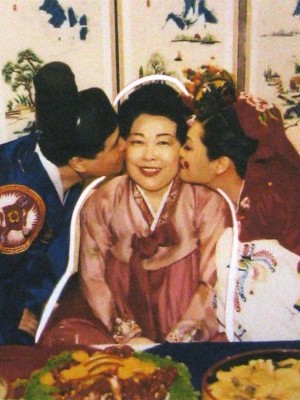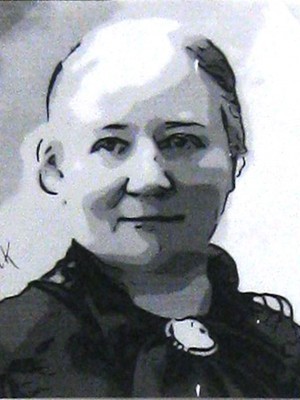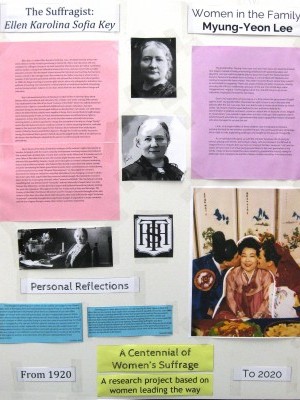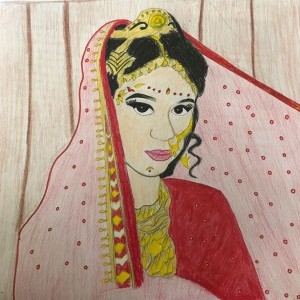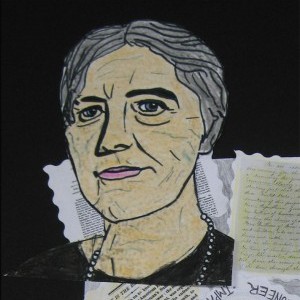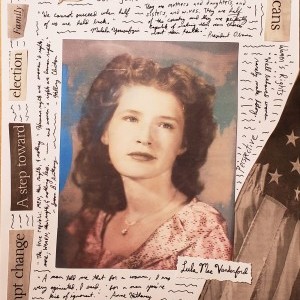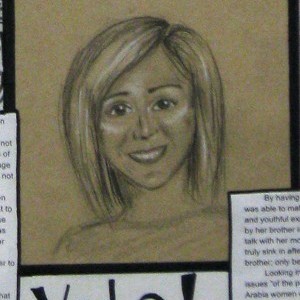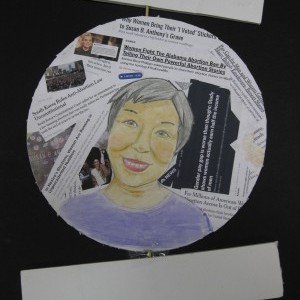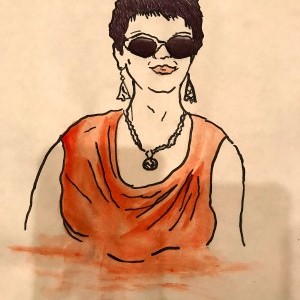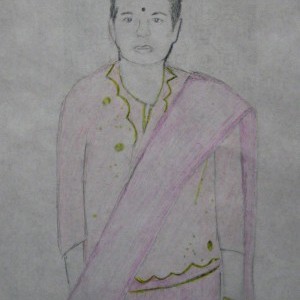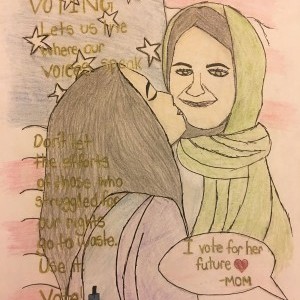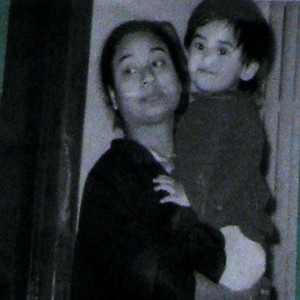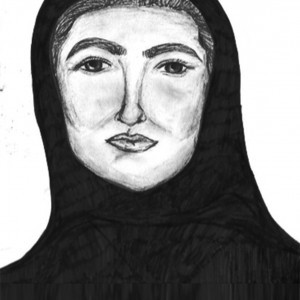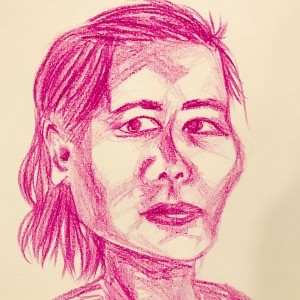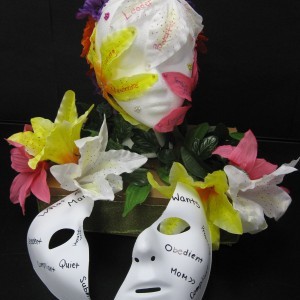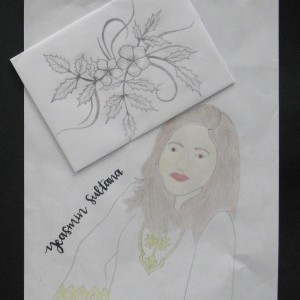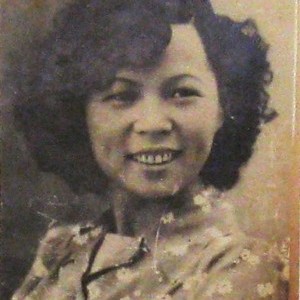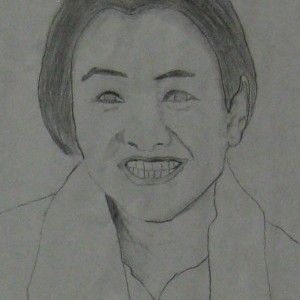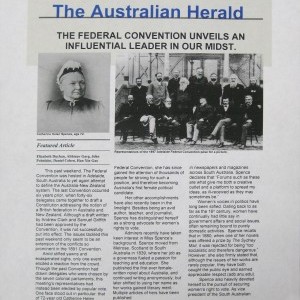Lindsay Kim & Danielle King
Townsend Harris High School | Flushing, NY | 11th Grade
Inspirational Family Member
My Grandmother
My grandmother, Myung-Yeon Lee, was only nine years old when the Korean War began. Instead of living an enriching childhood with good education and playtime, she was watching fighter jets fly above her head. Her family fled their home in Seoul and travelled down to Daegu in a truck filled with blankets and candies to survive the harsh winter. They then moved to Busan where they weren’t as welcomed or supported. There was a lack of food and other resources, making everyday life difficult. Additionally, because of the war, the school days were staggered and irregular. Yet throughout all of this, she did not give up on her education, hoping for the best for her future.
Due to her experience of growing up in a time where her government fought against itself, my grandmother cherished her right to have a say in the laws and policies after the war was over. She was able to vote in Korea since Article 11, which states, “all citizens shall be equal before the law, and there shall be no discrimination in political, economic, social or cultural life on account of sex, religion or social status,” was passed in 1948 when she was a little girl. She used her vote in South Korea to advocate for a government that could support the millions of people who also managed to survive the war.
Later, as a single mother of three children, she immigrated to America, wanting the best for her children and their futures. She continued to take advantage of her right to vote, supporting politicians who fought for the lives of immigrants.
As an individual who grew up with the “normal” American life of going to school, playing with friends, and living in a fairly safe environment, it is difficult to imagine the true impacts that wars have on innocent families. However, I still see the values of hard-work and virtue being passed down to the next generation in my family. I hope to demonstrate the same values my grandmother has by voting for politicians who represent me and the millions of other minorities in America today.
Historical Figure I Admire
Ellen Karolina Sofia Key
Ellen Key, or rather Ellen Karolina Sofia Key, was a Swedish feminist writer who wrote about a variety of topics pertaining to family life, ethics and education, and she was considered a suffragist. Key grew up with somewhat liberal parents—her father a politician and her mother coming from influential aristocratic roots—and she was raised with a proper education at home. She developed a keen interest for literature and teaching, having run a nursery school in her teenage years. She worked as her father’s secretary when he was a member of the Swedish parliament and this role allowed her to learn more about politics. In 1880, she began teaching at a private girls school, where she attempted to introduce new methods of teaching. Key maintained a critical attitude to traditional methods of teaching, such as having multiple subjects in one class, which bled into her ideas about change and education.
Key’s aforementioned love of literature is what led her to develop ideas about beauty, ethics, parenthood and education. Her utopian view of the coming 20th century was emphasized in the title of her book “Century of the Child” where she talked about how children had a right to a unconflicted childhood and a proper education. A proper education being one that encouraged children to develop their own minds, not stifle them, which she believed that schools were capable of doing. Key’s second book brought along a more feminist point of view, in which she believed women would hold more rights in comparison to how they did then, due to the fact that women naturally held a more nurturing nature, a natural capacity for caring. Her perception of society as a large “family” meant that she believed women could turn society in a more nurturing direction, with that capacity that men lacked. Key’s basis for her feminist ideals stemmed from studying the works of Charles Darwin and Herbert Spencer. Though she would inevitably be proven wrong, Key believed that a person’s beliefs should be judged by the effect it would have on the future, that the lifestyle adopted by the person would be passed onto future generations.
Key’s theory of heredity dictated her critiques of the women’s rights movement in Sweden. In tandem with the issues raised by evolutionism involving women, Key believed that women had a divided state of mind, that could be easily influenced. If a woman were to enter labor at the same level as men, the woman might become more “masculine.” Key abhorred this possibility, because–based on her thoughts on women’s inherent nurturing nature and its effect on society–she believed that should women lose that nature, society would be devastating for future generations to come. Key’s contributions are contradictory, as demonstrated in her work “Misused Woman Power,” as she judged the women’s movement for being too radical in a way that she believed was changing a woman’s nature, but at the same time, argued that they were not radical enough. She limited the women’s labor market by encouraging what she called “natural work fields,” like teaching or nursing, something that was deemed more “womanly” and not inherently of equal value as a man. Despite this, Ellen Key’s works did in fact impact and furthered several movements, earning her quite the reputation. Throughout her life, her works such as Love and Marriage, The Century of the Child, The Women Movement, and The Younger Generation brought critics and writers to her door. Her ideas about child education, that each child has the right “to choose its parents” eventually brought about significant changes to legislation in many countries and left her a legacy that gave many other writers a positive inspiration.
What the Project Means to Me
The thought of growing up in a time of war seems so foreign to me. I learn about wars in the classroom and read about the impact it has on civilian lives, but I’ve never experienced it first-hand. Since we’re so sheltered in our own little bubble of school work and extracurriculars, we don’t realize that some of those who suffered through these tragic events are still alive today, let alone that there are still children in other countries living in a war-torn area in constant fear for their lives. In recognizing this, we can find the value of making our voices heard to the government we live under, especially as women who are still undermined and disregarded everyday. My grandmother’s past with growing up during the Korean War and voting in two different countries has inspired me to continue advocating for the rights of women and minorities who still lack representation in our government.
Explore the Archive
More From This Class
Click on the thumbnails below to view each student's work.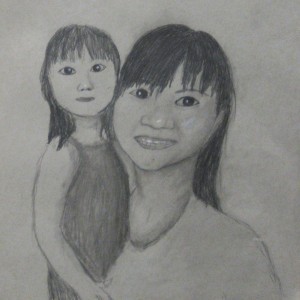
Vivian Chen, Josephine Chen, Ivan Chan, Zafirah Rahman, Neeharika Reddy, Daniel Shi, Daniel Shi, Jacqueline Cho & Osiris Guerrero

Jennifer Moran, Adebola Ademola, Julia Hong, Vicki Kanellopoulos, Inga Kulma, Maimunah Virk, Deborah Molina & Kailey Van
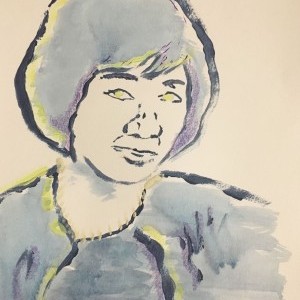
Kristina Chang, Sarah Chowdhury, Bethany Leung, Letian Fang, Cathy Choo, Kelly Chan, Emily Tan, Adamary Felipe & Kenney Son

